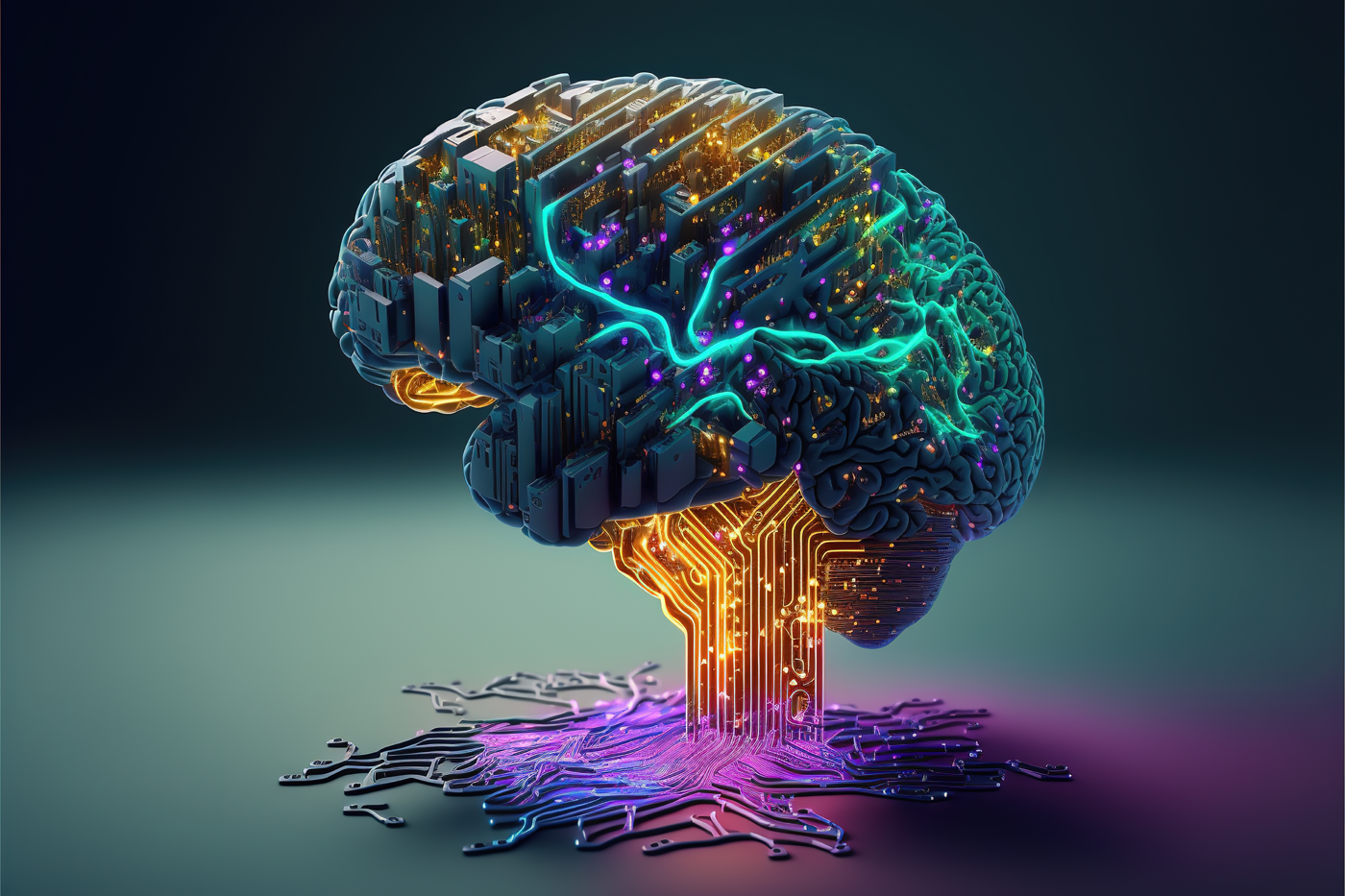The growth of artificial intelligence (AI) has impacted a wide array of businesses with new services and functionality. Everyday tasks imagined in science fiction movies are now a reality as AI continues to edge closer to fully replicating human intelligence. But what are the latest innovations in AI, and where is AI software development taking us? We have put together an article that looks at the hottest trends and hacks in AI development to give you a glimpse of what’s to come and help you determine what’s behind some of the industry advancements you’re grappling with.
Table of Contents
Introduction to Artificial Intelligence:
Artificial Intelligence (AI) is a term that describes machines that mimic human behaviour and intelligence to think, learn, reason and perform tasks in a manner similar to humans. AI covers technologies such as machine learning; natural language processing; robotics; and computer vision that enables machines to mimic human intelligent behaviour and decision-making, and perform tasks traditionally performed by a human.
The Rise of AI – A Brief History
It began in the mid-20th century with crude forerunners of today’s giant mainframe computers and early, batch-style processing technologies. It eventually grabbed hold with the emergence of machine learning in the 1960s and neural networks in the mid-1980s. Today, AI is in our heads (in the form of virtual assistants, such as Siri and Alexa), under foot (in self-driving cars) and in our Netflix accounts (in the form of recommendations based on our viewing habits).

Current Trends in AI
AI in Healthcare
The “human touch” in healthcare is slowly becoming a thing of the past: diagnostic tools powered by AI can scan patients’ medical scans at a level of accuracy that is difficult, if not impossible, to attain for humans. One potential use for AI machines is identifying early signs of illness such as cancer in radiology scans. The technology works by scanning through the information raised in the pictures, which would otherwise take too long for a human doctor to observe. These predictions can also impact treatment, helping doctors maximise time and resources by preparing for surges, alerting at-risk patients or identifying new concerns.
Natural Language Processing (NLP)
Natural language processing (NLP) is a branch of artificial intelligence dedicated to the interaction between humans and computers using human language. Recent breakthroughs in NLP have led to the development of extremely efficient language models, such as GPT-3, that are able to produce natural-sounding text and even conduct meaningful conversations. These models are now being used in a variety of applications, such as chatbots, intelligent assistants or assisting in content generation.
AI in Finance
AI has also been adopted by the finance industry to enhance decision-making, speed up processes and provide better customer experiences. Algorithms can evaluate enormous amounts of financial data in minutes, extract information and patterns that would otherwise be missed by human analysts. AI applications can also pick up on unusual or potentially fraudulent transactions. It is increasingly used in algorithmic trading and credit scoring, areas in which early and accurate decisions can make a massive financial difference. Robo-advisors can even provide personalised financial advice on investments based on the risk profile of individual clients.
Autonomous Vehicles
One of the most hyped, and potentially revolutionary, applications of AI is self-driving cars. Vehicles from Tesla, Waymo and Uber have the ability to drive without closed-loop control from a human driver, and they do so by ingesting real-time sensor data in way that leverages computer vision, sensor fusion and machine learning. The more these vehicles are built and used, the greater the potential to reduce accidents and traffic congestion, while opening the door to new possibilities in transportation.
AI in Education
AI is transforming education. Built to infer new knowledge from existing data, intelligent tutoring systems can personalise learning experiences by tailoring feedback and recommendations to each student; AI-assisted tools can help teachers grade assignments and manage administrative tasks, and identify students at risk of educational failure; AI-driven analytics can enable institutions to optimise their curricula and improve student outcomes.
Innovations in AI
Explainable AI
Transparency and interpretability are especially important when AI systems are complex. Explainable AI attempts to enhance the transparency of AI models by providing human-sounding explanations about why these models reached certain conclusions or predictions. It can assist users in the process of human verification as to why these AI-based decisions were made. For example, an AI tool could determine that a patient is at an elevated risk of having a heart attack based on mathematical calculations, but only an explainable AI technology might be able to decipher the complex web of reasons that led to this assessment. Explainable AI is useful in fields where well-informed human users can detect errors in the calculations made by AI – like in healthcare and finance, where the margin of error could be substantial. For instance, an AI model might advise against a patient undergoing surgery if it predicts that doing so holds a life-threatening risk that could result in death. This decision could spare a patient from the uncertainties of a controversial or risky procedure.
Federated Learning
Such models require the data to be stored centrally, which could pose data privacy and security risks, especially when personal or confidential information is involved in the training process. In a world packed with smartphones, wearables and other smart devices, the data held by organisations such as banks, hospitals and government bodies could be in the petabytes range. Federated learning allows a single AI model to be trained across multiple, distributed devices without raw data ever being shared. An organisation can benefit from the collective knowledge of dispersed data without compromising privacy. The need for privacy is glaring in sectors such as healthcare and financial services.
Reinforcement Learning
Reinforcement learning is a subfield of machine learning that concerns itself with training agents to make sequential decisions in order to achieve a goal (expressed as a reward signal) by rewarding desired behaviours. Reinforcement learning has been central to recent breakthroughs in game playing and robotics – systems based on this approach have defeated human champions in the games of Go and Dota 2. Beyond these applications in gaming, reinforcement learning has relevant implications for learning and adaptation in control systems, industrial automation and optimisation – that is, it concerns itself with automating the behaviour of adaptive systems, whose actions need to be taken to represent or improve their utility in the world.
Edge AI
Edge AI, on the other hand, pushes these models down to the edge of networks, where the AI models run on the edge device itself, rather than the centralised cloud infrastructure. In this way, edge AI reduces the latency, improves the real-time experience, and eliminates the need for continual internet connectivity. It is particularly important in use cases where quick decisions are crucial, such as autonomous vehicles, industrial automation, and smart cities. And by running on the edge, the models avoid the privacy risks associated with sending sensitive information to the cloud.
The Role of AI Software Development Companies
Leading players in the AI software development companies play a key role in taking artificial intelligence to the next level by creating innovative AI solutions across industries. Using a broad range of machine learning and data science skills, artificial intelligence software development companies can help companies unlock the value of AI technologies. They will leverage software engineering capabilities for existing enterprise products/platforms and work on new digital initiatives.
For example, an AI software development company could develop customised AI algorithms to optimise supply chain processes, improve customer experiences, or personalise product recommendations. The same company could develop AI-powered chatbots and virtual assistants that accelerate customer support queries.
Ethical Considerations in AI
Now that we’re moving into a phase where we can ethically hash out the question of how to use this technology, we have to ask: what can and should we be discussing in the world of ethics and AI? The answer: a lot. Some of the central concerns are as follows:
Bias and Fairness
In principle, AI systems are as fair – or unfair – as the data they’ve been trained on. If training data is biased, AI models can perpetuate the bias, exacerbating it at scale. That’s why new techniques are needed to audit bias in AI algorithms, to achieve fairness and equal treatment; through collection of diverse and representative data, transparent evaluation of models, and ongoing checks of AI systems in the field.
Privacy and Data Security
AI is heavily dependent on big data, which can have privacy implications. Organisations must set up strong data protection systems to protect data and be in line with relevant regulations. For example, federated learning and differential privacy are emerging techniques that help to mitigate these concerns: they allow us to use data in a useful way while still protecting individual privacy.
Accountability and Transparency
In terms of oversight and policing, we are obliged to ensure that AI systems are transparent in their decision making. Indeed, mandating transparency is clearly important for holding algorithms – and the humans who are creating the models being fed to them – to account. Models need to be regularly audited and validated, and users should be told exactly how computers are arriving at automated decisions. Equally important, policies and procedures evolving governance: organisations should establish codes of conduct and ethical principles when deploying artificial intelligence.
The Future of AI
And I predict that some amazing changes are on their way, thanks to continued advancements in AI to understand and generate human-sounding text. In the near future, some areas to watch include:
AI in Healthcare
As such, AI will be able to identify early signs of disease, performance decline and even mortality, thereby improving the personalisation of treatment plans and encouraging preventive medicine. Its ability to assist in drug discovery and development to identify optimal molecules to treat unaddressed medical needs is also improving. All of this and much more will soon be achievable, leading to enhanced healthcare, greater productivity and reduced costs for healthcare systems.
Human-AI Collaboration
Success for AI lies in the complementary nature of its collaboration with humans, as AI systems will provide more opportunities for human expertise to flourish, enabling humans and machines to work together to make complex decisions and to automate repetitive tasks. This human-machine collaborative partnership will enable professionals across a range of occupations (health, finance, medicine, education) to engage with and utilise this new technology to become more productive and innovative.
AI and Sustainability
Particularly in our world of sustainability issues and conservation challenges, AI has the potential to be a guiding light in helping us get to where we need to go.it can enhance our energy use efficiency, minimise waste and bolster sustainable resource management By devising more efficient means to conduct supply chain operations, AI could lessen carbon footprints. AI might also be used to create smarter grids for energy distribution.
Conclusion
This technology is fast evolving, disrupting every industry we know from health care and finance, to education and autonomous driving and more importantly, improving and augmenting our lives by the minute. Future trends in artificial intelligence not only disrupt and shape industries, but our everyday lives as well. Explainable artificial intelligence (XAI), federated learning, and edge artificial intelligence will continue to change the landscape in the near future, bringing about more possibilities.
AI software development firms are leading the revolution of how AI is used and customised for various industrial sectors. Addressing the ethical aspects of AI, such as fairness, privacy and accountability, enables us to realise the potential of AI for the overall betterment of today’s world and tomorrow’s.
The future of AI looks bright. And while we still cannot predict or fully comprehend what is to come, one thing is for sure: the AI revolution is here to stay and it will drive the future of technology and society.
















